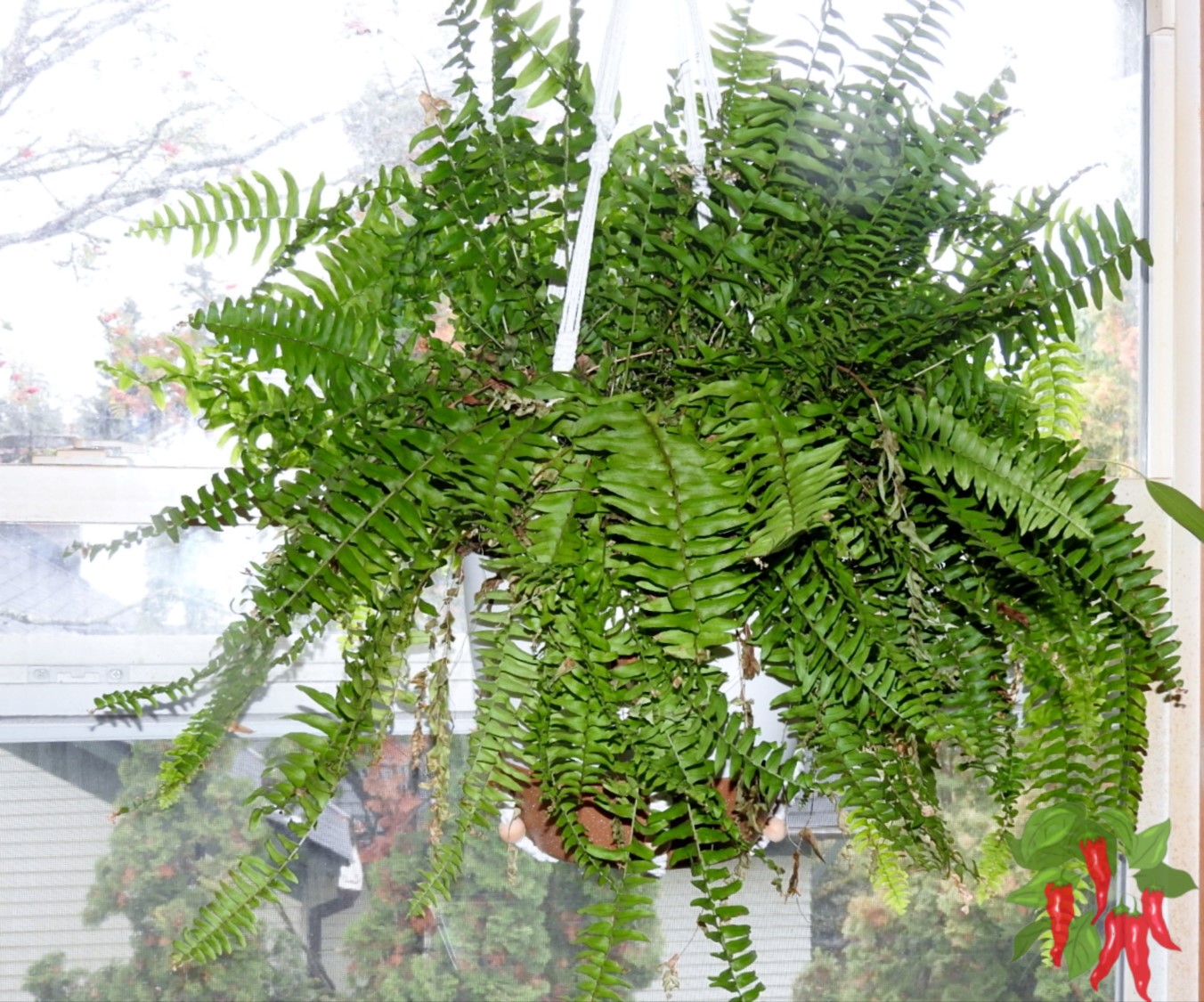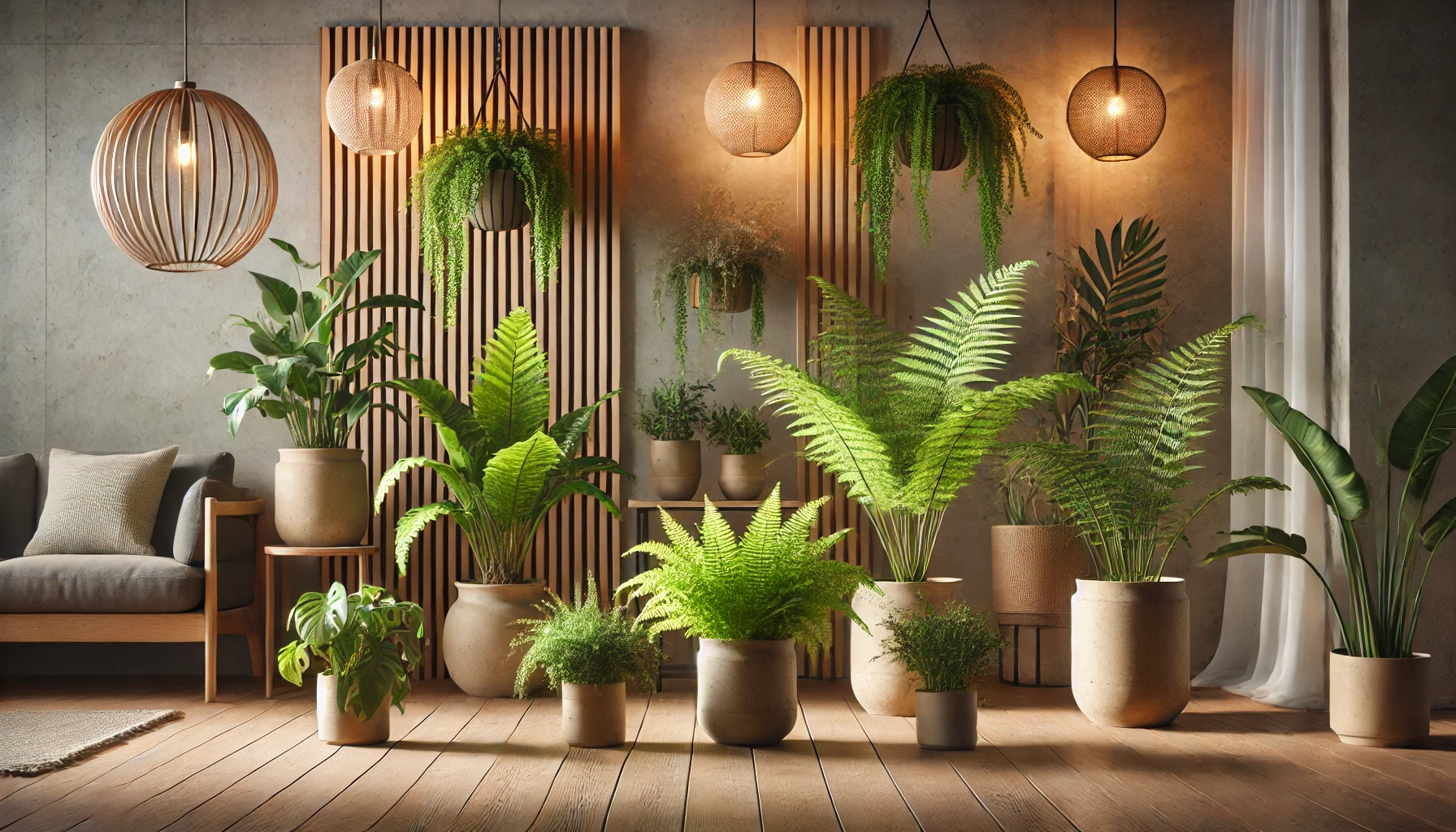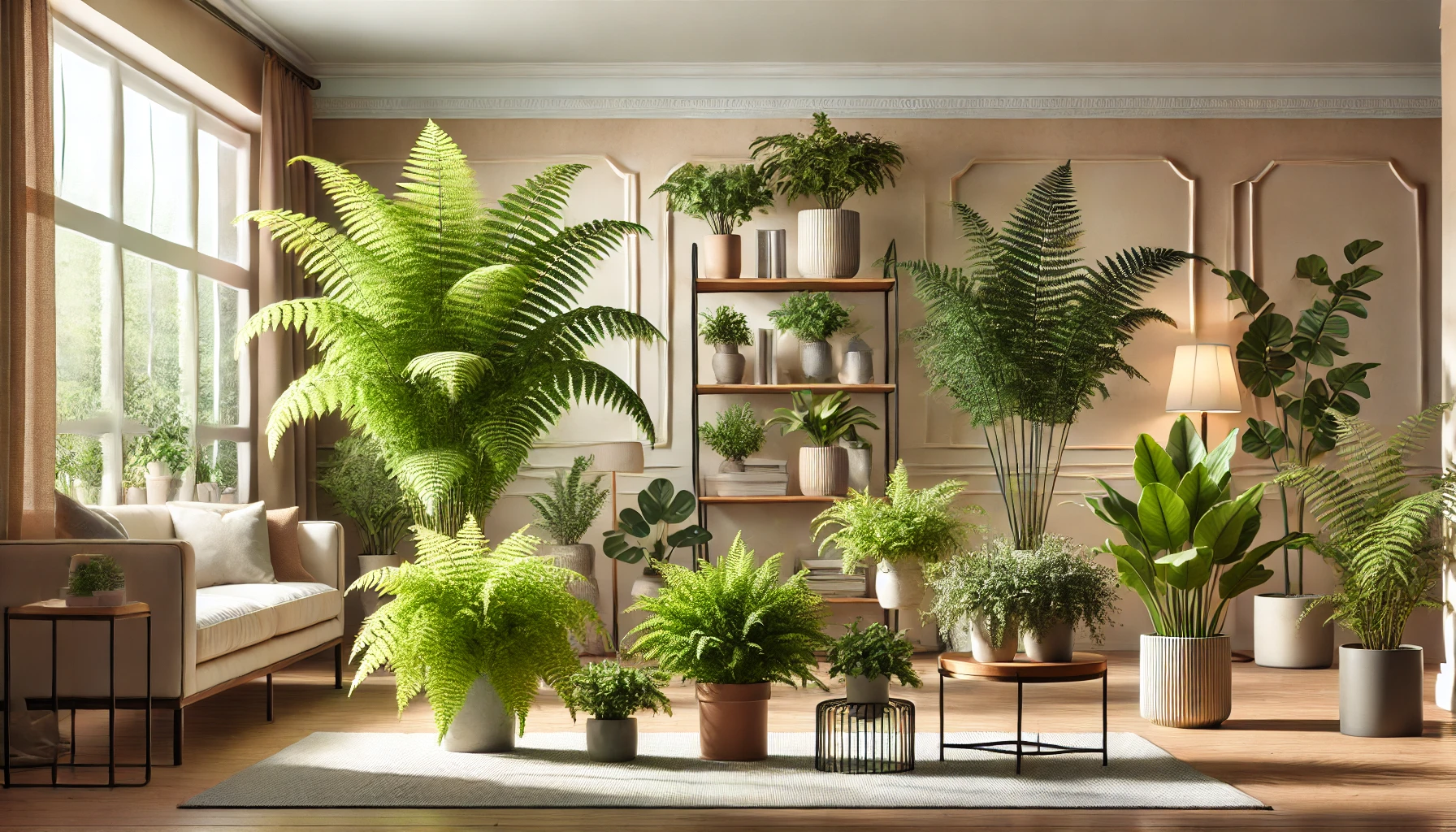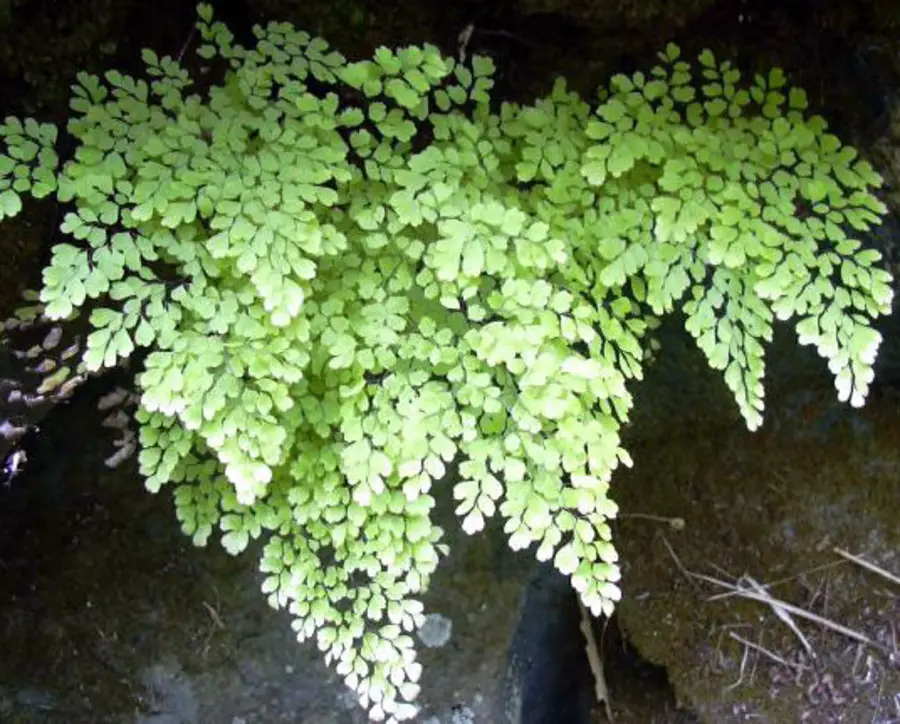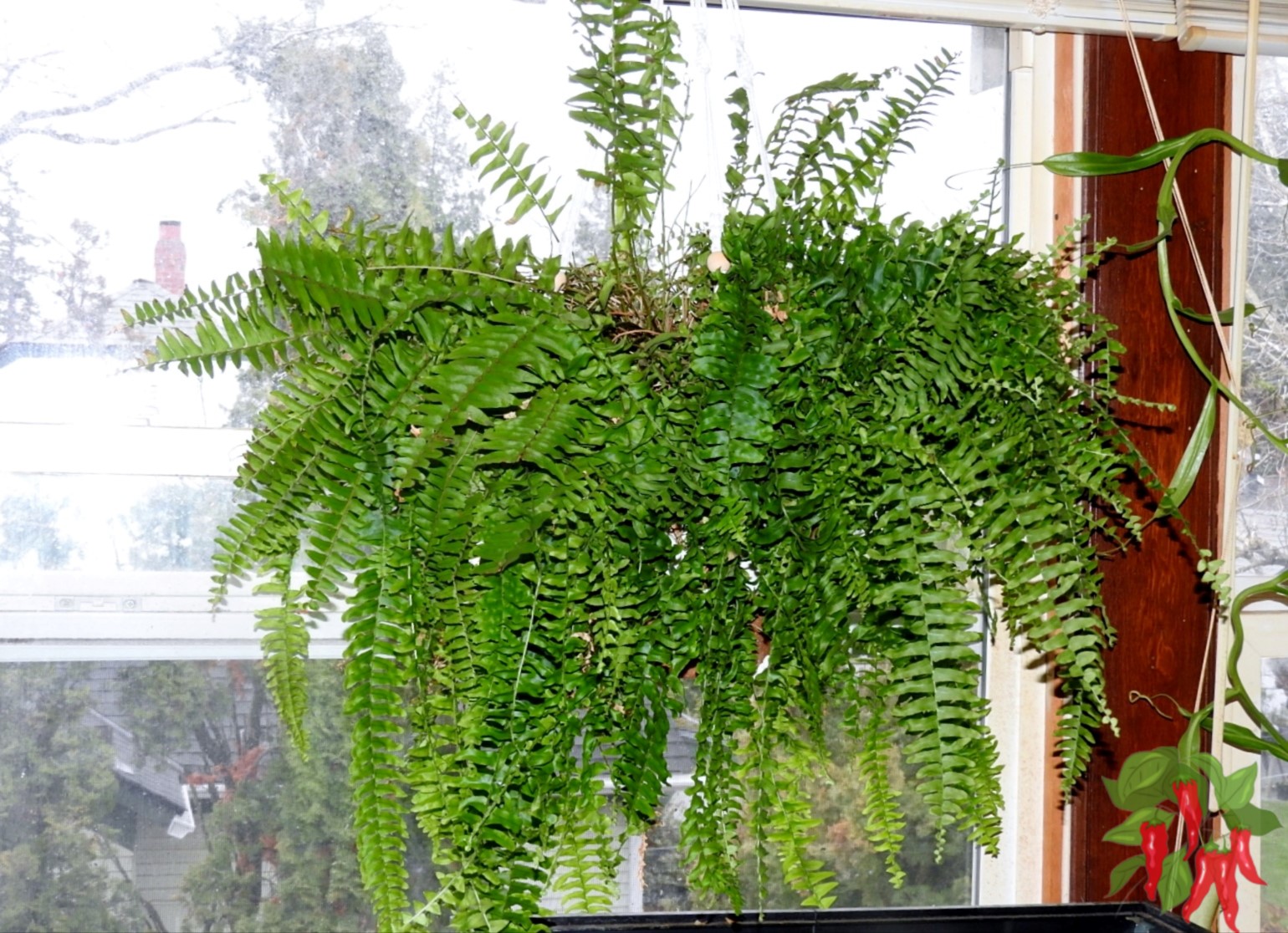This post contains affiliate links. If you buy something from one of our links we may earn a commission. Thanks
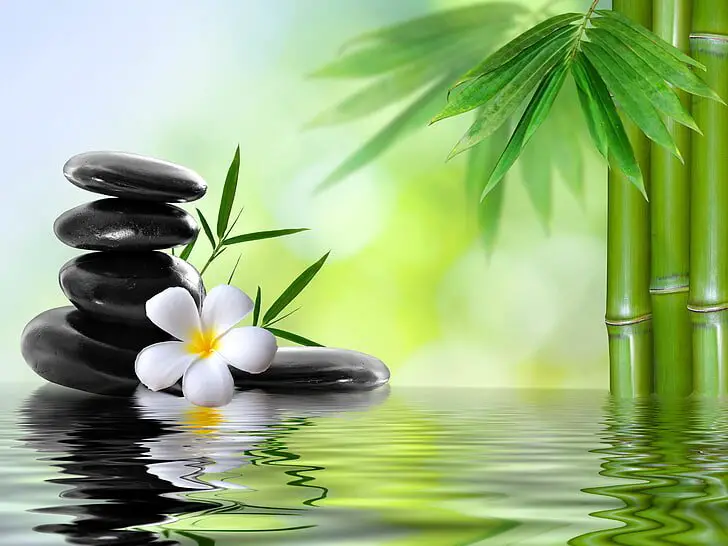
Indoor Plants and Feng Shui can transform your home into a powerhouse of positive energy!
Feeling like your space is missing that special something? Or maybe your home’s vibe is a bit off?
No worries – adding some green buddies strategically placed according to Feng Shui principles can boost your space’s energy and create a more harmonious living environment.
 Costa Farms Lucky Bamboo Plant, Easy to Grow Live Indoor Houseplant in Ceramic Planter Pot, Potting Mix, Grower’s Choice, Perfect for Home Tabletop, Office Desk, Shelf, Zen Room Decor, 12-Inches Tall
Costa Farms Lucky Bamboo Plant, Easy to Grow Live Indoor Houseplant in Ceramic Planter Pot, Potting Mix, Grower’s Choice, Perfect for Home Tabletop, Office Desk, Shelf, Zen Room Decor, 12-Inches Tall
Indoor Plants and Feng Shui Key Takeaways
- Indoor Plant Care Tips for Feng Shui include placing plants in areas corresponding to specific life aspects on the Bagua map.
- Choose plants like money trees or peace lilies for prosperity and harmony.
- Avoid spiky plants in relaxation areas.
- Regularly care for plants to maintain positive energy.
- These practices help create a balanced, energized home environment according to Feng Shui principles.
1. Introduction: The Role of Plants in Feng Shui
 California Tropicals Rare Chinese Money Plant (Pilea Peperomioides) – Live House Plant, 4 Inch Pot for Easy Care, Perfect for Office, Home & Feng Shui Decor, Real Plants for Gardening
California Tropicals Rare Chinese Money Plant (Pilea Peperomioides) – Live House Plant, 4 Inch Pot for Easy Care, Perfect for Office, Home & Feng Shui Decor, Real Plants for Gardening
Want to transform your home into a haven of positive vibes? Indoor Plants and Feng Shui are your secret weapons!
Feeling like your space is missing that special something? Plants might just be the missing puzzle piece in your Feng Shui practice.
Let’s explore how these green buddies can boost your home’s energy and create a more harmonious living space.
2. The Five Elements and How Plants Fit In
In Feng Shui, everything’s about balance. Plants play a crucial role in this balancing act:
Wood Element:
Plants represent the wood element, which is all about growth, vitality, and new beginnings. It’s like having a little spring in your home all year round!
- Nourishes the Fire element (think creativity and passion)
- It can help balance out too many Earth elements (stability and grounding)
Balance with the Bagua:
The Bagua is like a Feng Shui map for your home. Each area corresponds to different aspects of life:
- Wealth area (Southeast): Place money trees or jade plants here for prosperity
- Health area (East): Areca palms or peace lilies can boost your wellbeing
- Relationships (Southwest): Flowering plants can nurture love and connections
3. Best Indoor Plants for Feng Shui
Ready to green up your space with some Feng Shui superstars? Here are some top picks:
1. Money Tree (Pachira aquatica):
 Costa Farms Money Tree, Easy Care Indoor Plant, Live Houseplant in Ceramic Planter Pot, Bonsai Potted in Potting Soil, Home Décor, Birthday Gift, New Home Gift, Outdoor Garden Gift, 16-Inches Tall
Costa Farms Money Tree, Easy Care Indoor Plant, Live Houseplant in Ceramic Planter Pot, Bonsai Potted in Potting Soil, Home Décor, Birthday Gift, New Home Gift, Outdoor Garden Gift, 16-Inches Tall
This plant isn’t just about the Benjamins – it’s a powerhouse of positive energy!
- Place in the Southeast (wealth area) of your home
- Loves bright, indirect light
- Water when the top inch of soil feels dry
2. Areca Palm:

Areca Palm in 4 inch grower’s Pot Sold by California Tropicals
Want to bring some peace and positivity to your pad? Learn how the Areca Palm’s got your back.
- Ideal for East or Southeast sections
- Prefers bright, indirect light
- Keep soil consistently moist but not waterlogged
Parlor Palm Chamaedorea elegans Care and Feng Shui Placement
3. Peace Lily (Spathiphyllum):
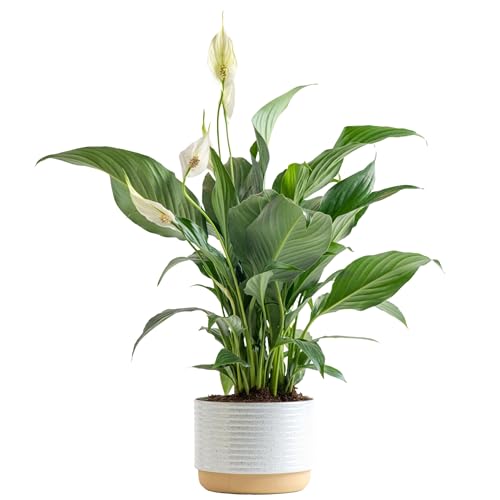 Costa Farms Peace Lily, Live Indoor Plant with Flowers, Easy to Grow Houseplant in Decorative Pot, Potting Soil, Thinking of You, Get Well Soon Gift, Room Decor, 1 Foot Tall
Costa Farms Peace Lily, Live Indoor Plant with Flowers, Easy to Grow Houseplant in Decorative Pot, Potting Soil, Thinking of You, Get Well Soon Gift, Room Decor, 1 Foot Tall
This calm and collected plant is like a zen master for your home.
- Place in the health area for maximum benefit
- Tolerates low light but blooms best in bright, indirect light
- Water when the top inch of soil is dry
4. Jade Plant (Crassula ovata):
 Jade Plant 4″ Crassulla Ovata Hummel’s Sunset Succulent Plants Live, Easy to Grow Hard to Kill Houseplant by The Succulent Cult
Jade Plant 4″ Crassulla Ovata Hummel’s Sunset Succulent Plants Live, Easy to Grow Hard to Kill Houseplant by The Succulent Cult
This cute little succulent is believed to be a money magnet!
- Place near the entrance or in the Southeast corner
- Loves bright light
- Let the soil dry completely between waterings
5. Pothos (Epipremnum aureum):
Golden Pothos 
Costa Farms Golden Pothos Live Plant, Easy Care Indoor House Plant in Modern Decor Planter Pot, Natural Air Purifier Houseplant10-Inches Tall
The Golden Pothos is a striking variety that features vibrant yellow and green leaves, often associated with wealth and prosperity.
- Symbolism: Encourages financial abundance and success.
- Best Placement: Southeast areas to amplify prosperity and positive energy.
Learn how to grow Pothos an easy beginner plant.
6. ZZ plant (Zamioculcas zamiifolia)

Costa Farms ZZ Live Indoor Tabletop Plant in 6-Inch Grower Pot
The southeast corner of your home is known as the wealth area in Feng Shui, and the ZZ Plant is a perfect match for this space.
This succulent is believed to be a money magnet attracting financial abundance and good fortune! Learn how to grow ZZ Plants
- Place near the entrance or in the Southeast corner
- Loves bright indirect light
- Let the soil dry completely between waterings
Chinese Evergreen Care: Boost Growth & Energy with Feng Shui
4. Placement Tips According to Feng Shui
Where you put your plants is just as important as which plants you choose. Here’s a room-by-room guide:
Living Room:
This is where you entertain and relax, so you want energizing but not overwhelming plant energy.
- Large plants like fiddle leaf figs in the East corner can boost health and family harmony
- Avoid placing large plants in the center of the room – it can block energy flow
Learn about Caring for a Fiddle Leaf Fig
Bedroom:
While plants are generally discouraged in bedrooms (too much active energy for a rest space), there are exceptions:
- A few flowers in vases can attract romantic energy
- Avoid plants with spiky leaves or flowers with strong scents
Kitchen:
The kitchen is all about nourishment, but be careful with plant placement:
- Small herbs on the windowsill can add a touch of freshness
- Avoid placing plants near the stove – wood energy can intensify fire energy
Entryway:
First impressions matter, even in Feng Shui!
- Lucky bamboo near the entrance can welcome good energy
- A money tree on the left side of the door (as you enter) can invite prosperity
Caring for Jasmine Indoors: Growth Tips & Feng Shui Placement
5. Avoiding Bad Feng Shui with Plants
Not all plants are Feng Shui friendly in all spaces. Here’s what to watch out for:
Spiky Plants:
Cacti and plants with sharp leaves (like snake plants) can introduce harsh energy. Avoid these in:
- Bedrooms
- Relaxation spaces
- Areas where you want to promote gentle, flowing energy
Dead or Dying Plants:
Always remove or replace unhealthy plants. They’re like energy vampires, sucking out the good vibes!
- Regularly prune and care for your plants
- If a plant isn’t thriving, try a different location or consider replacing it
6. Indoor Plants and Feng Shui FAQs
Q: Which plants should I avoid in Feng Shui?
A: Generally, avoid plants with sharp or spiky leaves in living spaces, as they can create harsh energy. Examples include cacti and some varieties of snake plants. Also, dead or dying plants should always be removed as they can attract negative energy.
Q: Can I have plants in the bathroom?
A: Yes, but choose wisely! Bathrooms often have good energy for plants due to humidity. Opt for moisture-loving plants like lucky bamboo, orchids, or peace lilies. Just make sure there’s enough light and avoid overcrowding the space.
Q: How do I use plants to attract wealth and prosperity?
A: Place plants associated with wealth, such as money trees or jade plants, in the Southeast corner of your home or your office. Keep these plants healthy and vibrant.
Round-leafed plants are particularly auspicious for attracting prosperity in Feng Shui.
7. Conclusion: Harmonizing Your Space with Feng Shui and Plants
Creating Your Green Oasis of Harmony
As we’ve explored, indoor plants aren’t just pretty faces – they’re powerful tools in the art of Feng Shui.
By thoughtfully incorporating plants into your space, you can create a more balanced, energized, and harmonious home.
Personalizing Your Plant Placement
Remember, while there are general guidelines, Feng Shui is also about intuition and what feels right for you.
Don’t be afraid to experiment with different plant placements to see what works best in your unique space.
Growing with Your Plants
As your plants grow and thrive, so too will the positive energy in your home.
Caring for your plants becomes a practice in nurturing good vibes and cultivating a more balanced life.
Key Takeaways:
• Plants represent the wood element in Feng Shui, promoting growth and vitality
• Use the Bagua map to guide plant placement for specific life areas
• Choose plants like money trees, peace lilies, and jade plants for positive Feng Shui
• Avoid placing large or energizing plants in bedrooms
• Remove dead or dying plants promptly to maintain positive energy
• Be mindful of plant placement in relation to other elements (like fire in the kitchen)
• Trust your intuition and adjust plant placements based on how they feel in your space
By incorporating these Feng Shui principles with your indoor plants, you’re not just decorating – you’re creating a living, breathing sanctuary that supports your well-being and aspirations.
Nurturing Your Green Feng Shui Allies
As we wrap up our journey through the world of plants and Feng Shui, let’s recap some essential care tips to keep your green friends thriving and your home’s energy flowing positively.
Placement Perfection
Remember, where you put your plants matters just as much as which plants you choose. Use the Bagua map as your guide to enhance specific areas of your life.
Light and Water Balance
Most Feng Shui-friendly plants prefer bright, indirect light. Water when the top inch of soil feels dry, but adjust based on each plant’s specific needs.
Energy Maintenance
Regularly pruning, dusting leaves, and removing any dead or yellowing foliage keeps your plants healthy and the energy in your space vibrant.
Mindful Growth
As your plants grow, be prepared to reassess their placement. A small plant that’s outgrown its spot might need a new home to maintain good energy flow.
Key Takeaways:
• Choose plants based on the Feng Shui qualities you want to enhance in your life
• Place plants according to the Bagua map for maximum benefit
• Avoid spiky or overly energetic plants in relaxation areas like bedrooms
• Maintain plant health through regular care to keep energy positive
• Remove or replace any unhealthy plants promptly
• Trust your intuition – if a plant placement feels off, try a new spot
• Remember, even small plants can have a big impact on your space’s energy
By following these Indoor Plant Care Tips and Feng Shui principles, you’re not just tending to plants – you’re cultivating a harmonious, energized living space that supports your well-being and goals.
Happy planting, and may your home be filled with positive vibes!
✨ Indoor Plants and Feng Shui
Enhance harmony, balance, and positive energy in your home with these Feng Shui indoor plant guides.
- 🌱 Feng Shui Plants (Pillar Guide)
- 🏡 Indoor Plants and Feng Shui
- 🌿 Feng Shui Vertical Gardens for Office Spaces
- 🌸 Best 24 Feng Shui Indoor Plants
- 💧 Growing Feng Shui Plants
- 🌳 Common Chinese House Plants for Feng Shui
- 🪴 Feng Shui Hanging Plants
- 🛏️ Feng Shui Bedroom Plants
- 🍃 ZZ Plant Feng Shui
- 🌱 Using Feng Shui in Vertical Gardens
- 🎋 Growing Lucky Bamboo in Feng Shui
- 🏠 Indoor Plants for Feng Shui
- ☯️ Indoor Plants for Positive Energy
- 🌼 Chinese Evergreen Care
- 🌺 Growing Peonies Indoors and Outdoors
- See all articles in our Indoor Plants and Feng Shui category
Caring for African Violets: Indoor Feng Shui Tips and Tricks
Caring for Begonias Indoors: Feng Shui Principles & Joyous Gardens
Caring for Dragon Tree Indoors: Feng Shui: Easy Dracaena & Feng Shui
Cast Iron Plant Care Indoors: Easy Aspidistra Feng Shui Tips
Related Content
Visit my Amazon Influencer Page for videos and gardening products Grow Your Own Garden

